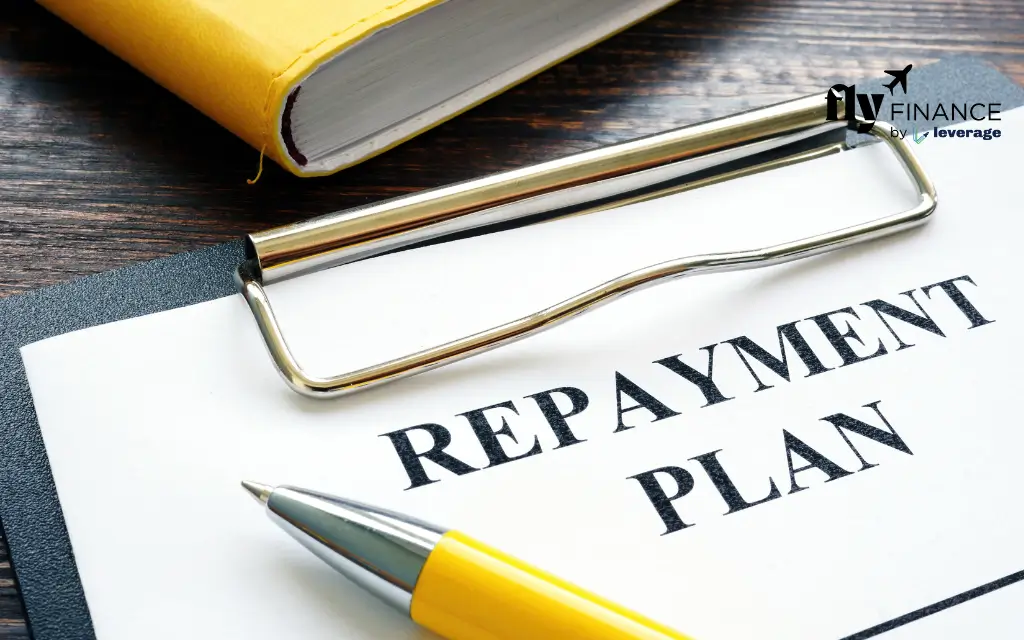Education loan repayment time must be considered properly as it will determine the amount of EMI, rate of interest and the overall cost of the loan. While securing a loan is important, understanding the repayment structure is equally important. Repayment tenure varies across banks, and for students studying abroad, it is designed to be flexible enough to accommodate their financial situations post-graduation.
Table of contents
What is Education Loan Repayment Time?
In India, most of the public and private sector banks usually offer a repayment period of up to 15 years for education loans. This extended repayment period is structured to ensure that students can comfortably manage their financial obligations after they start earning. For example, Canara Bank education loan repayment time is up to 15 years. The repayment period includes the moratorium period of course period plus 1 year or 6 months after getting a job, whichever is earlier.
Also Read: Check here some of the most common FAQs on education loan repayment
Loan Repayment Time: Moratorium Period
One of the most important features of education loans for students studying abroad is the moratorium period. This moratorium period, also known as the “repayment holiday,” refers to when the borrower is not required to make any repayments. Banks usually offer a moratorium period that lasts for the duration of the course plus an additional 6 months to 1 year after the student has secured a job. However, banks charge simple interest during this period and if you want to pay you can do that.
- The idea behind this is to allow the student to focus on their studies and job search without the immediate pressure of repayment.
- It also ensures that they can start repaying once they have a stable income, often earned in foreign currency.
- If you do not pay the simple interest charged during the moratorium period, it will be added to the loan amount and the EMI will be determined accordingly.
Education Loan Repayment Options
Many Indian banks allow students to choose from multiple repayment options depending on their financial situation. For example, some banks allow students to start paying interest as soon as the loan is disbursed, while the principal repayment can be deferred until after the moratorium. Check some of the major education loan repayment options below:
Partial Interest Payment
During the moratorium period, the bank charges simple interest and also allows you to pay the same during that time. This will help you to get a low EMI amount after the moratorium and also reduce the total cost of the loan. Another option is to pay a portion of the interest during the course period, reducing the burden later.
Full Moratorium
In this case, both the interest and principal repayments begin after the moratorium period. Though this can reduce your financial burden during the period of your studies but it will also result in a high amount of EMI when the repayment will start after the moratorium.
Also Read: Want to foreclose the loan without extra charge? Check here all about early repayment charges on education loan
Factors Affecting Repayment Period
There are mainly three factors that affect the education loan repayment period. These include the loan amount, duration and type of the course and the rate of interest on the education loan. Check more details below:
- Larger loan amounts, often taken for international courses, might require extended repayment tenures. In this case, you can extend the repayment period up to 15 years.
- Courses like MBBS or engineering might have longer repayment tenures compared to short-term courses because the loan amount is higher for these courses.
- Some specialised education loans for medical and management programs allow for longer repayment times.
- Interest rates for education loans to study abroad are higher due to currency risks. This can affect how quickly the student can repay the loan.
International students pursuing higher education abroad can get an education loan repayment period of up to 15 years. This long repayment window ensures that students have enough time to repay the loan once they secure a stable income. Check some FAQs based on education loan repayment time below:
FAQs
The repayment period for education loans in India is generally up to 15 years.
The moratorium period is a grace period where students are not required to make any repayments. It covers the course duration plus an additional 6 to 12 months after graduation.
Yes, many banks offer flexible repayment options. Students can choose to pay interest-only EMIs during the study period or a portion of the interest which will reduce the burden once the principal repayment begins after graduation.
The repayment period often varies based on the loan amount. Larger education loans to study abroad may require extended repayment tenures.
Yes, the Central Scheme for Interest Subsidy (CSIS) offers interest subsidies for students from economically weaker sections. This can ease the repayment burden for a limited time after graduation.
To know more about education loans, the best bank accounts for students, forex and banking experience for global students or international money transfers, reach out to our experts at 1800572126 to help ease your study abroad experience.
Follow Us on Social Media





























